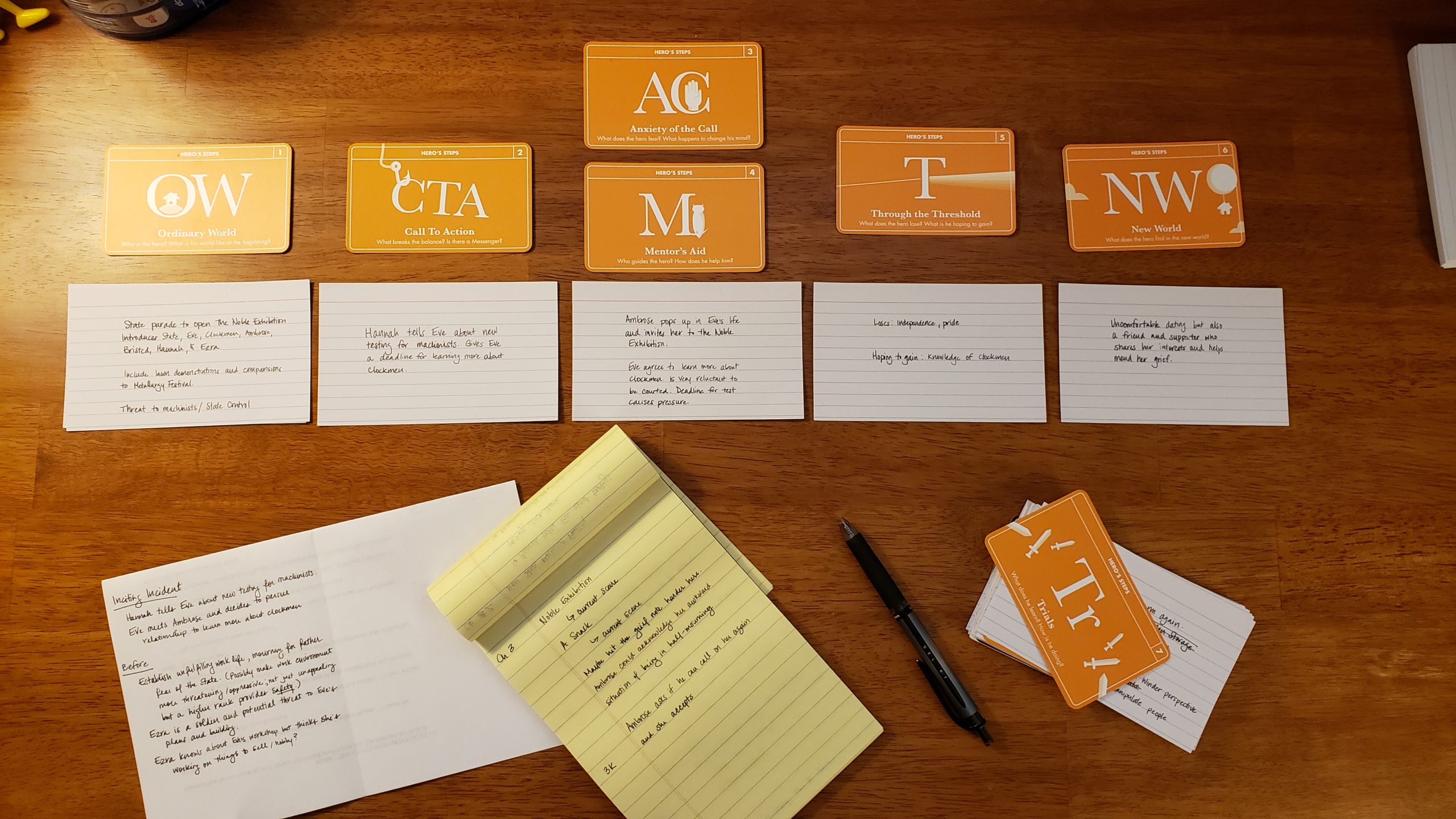Starting a new writing project can be overwhelming. Even when I’m excited, there’s so much ahead. There’s words, time, decisions, commitment—and when I think about how many words it takes to draft and revise a novel or how many things are still undecided or how many hours (and then days, weeks, and months) are between me and the end of my book, it can stall my momentum. So, it’s important for writers to have some idea of how to create writing motivation.
Lack of motivation isn’t the same thing as a lack of desire. I wanted to dive into my novel back in November, but I only managed to work on it for 15 days before the end of 2023. (Which for some of you probably sounds amazing, but as a daily writer, it’s much less so.) Some of those distractions were related to life—the holiday season, illness, commitments to friends and family—but some of it was from a lack of motivation. Luckily, writers can create writing motivation, it just requires some ingenuity, a toolkit, and knowing yourself really, really well.
Create Writing Motivation
Identify the Easiest Goal
Start by identifying the easiest goal that will also make you feel good about your progress. There are three rules to follow when identifying this easiest goal:
- Choose something you can achieve every time you sit down to write.
- Choose something that also gives you room to exceed your goal.
- Choose something that will feel like progress.
For example, if you usually write 250–300 words when you sit down to write, your easiest goal might be to write 100 words on your novel every time you write. 100 words is less than you normally write, so you know it’s achievable, and since you normally write more, you have room to exceed your goal and feel great about your progress. And just imagine the day you write 500 words. That’s five times your usual goal! Now that’s a lot of progress.
Goals you might consider include:
- word count
- time spent writing
- completing scenes or beats
Track Your Habit

Photo by Edward Howell on Unsplash
Record each time you meet your writing session goal. You can use any kind of tracker you like but use something that will create writing motivation.
Physical or visual trackers can be good for seeing how small progress grows. You can mark days on a calendar, fill in blocks on a bullet journal, award yourself stickers, or use an app with a visual component (various graphs and chains are common in tracker apps).
It can also be helpful to have a tracker that automatically accumulates your progress. Like, a word count tracker where you fill in daily word counts, but the tracker informs you of how many total words you wrote and on how many days you worked. That data can help motivate you on future weeks and months to challenge yourself to reach a little further—or it can let you off the hook, so you know you’ve got padding for any rough days ahead.
Break Your Plan into Manageable Chunks
Stop looking at your novel as writing and polishing 100,000 words, or even as writing 30 chapters. Don’t think about working on your novel for three hours every day for eight months (or the end math on that being 720 hours).
Start with that big picture, and then break it into smaller and smaller chunks until you find the chunk that sits comfortably in your head and motivates you to write.
You might need to break your novel into:
- which chapters you’ll write each quarter of the year
- which chapters you’ll write each month
- how many scenes you’ll write each month (or week)
- how many words or hours you’ll write each week (or day)
How you divide your plan into chunks doesn’t have to match your easiest goal—and may help if it doesn’t! Keeping an eye on time for your easiest goal and word count for your plan can provide multiple ways to create writing motivation. If you don’t have twenty minutes to write today, but you can quickly slap together your planned landmark of 200 words, you’re more likely to write than assume it’s a wasted writing day.
The Key to Motivation
The real key to learning how to create writing motivation is to give yourself as many motivators as you can. Word count goals, time goals, scene or chapter or date goals can all help move you forward—as long as they speak to you.
You might rely on a few rewards or prizes along the way, too. Some days that negotiation for a hot chocolate if I write 500 words is the thing that gets me from 437 words to over 500.
Accountability buddies, social media check-ins, and other ways of reporting your progress to someone can also create writing motivation. Knowing yourself, knowing what motivates you, and adapting other people’s suggestions to what you know will help YOU create writing motivation is the difference between starting your project and finishing it.
For full access to The Write Life and more about what I’ve done to assist with my creative life, sign up on Patreon for $1 or more per month. You’ll also receive a personalized thank you in a future edition of The Write Life.








